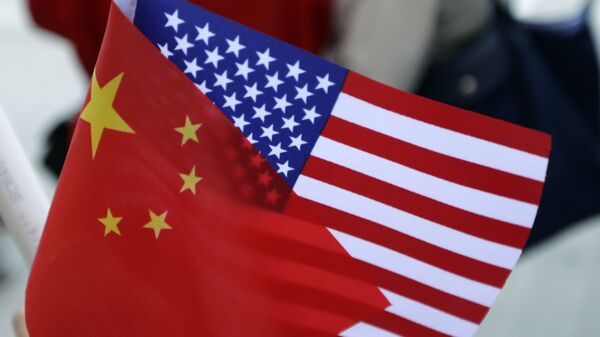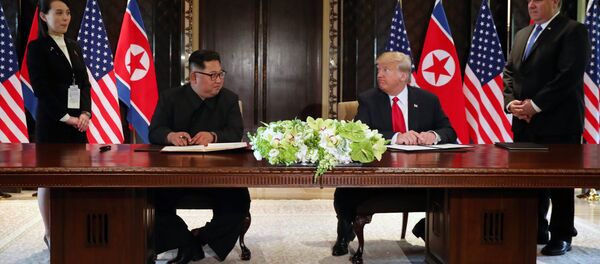Sputnik: What should we expect from this meeting between James Mattis and his Chinese counterparts?
John Short: Mattis is after two things, one is he’d like to limit China’s expansion into the islands of the South China Sea and that would be a much more negative perspective, but on a more positive side Mattis and the US needs China’s help in dealing with North Korea; so it’s on the one hand and on the other hand, that type of meeting.
READ MORE: Indispensable Partner: Why US Can't Solve N Korean Problem Without China
Sputnik: Mattis has spoken about China's increasing influence in the South China Sea, what measures can the United States take to ensure this?
John Short: Not much to be honest; China’s expansion, especially into the Spratly Islands, has been marked over the last decade and accelerated in the last couple of years, they’ve essentially weaponized a whole series of small islands. The US has made its displeasure known, but hasn’t really done much, occasionally it sends a US ship into the territorial waters, but that’s about all; so China's expansion has really went uncontested by the US up until now.
Sputnik: What consequences can this have on Washington’s ties with countries challenging China’s claims over the disputed South China Sea? Do you think the US is now ready to put more pressure on these countries?
Sputnik: Taiwan has recently called on the world to counter China’s increasing influence, how can this complicate US relations with Taiwan?
John Short: China sees Taiwan as an integral part of China, but China's willing to play the long game and not force the issue, eventually wait for Taiwan to become part of China. The US has a more ambiguous position: on the one hand they realize that they have to recognize the PRC, the mainland China, as the sole sovereign state, but it still gives tremendous military support to Taiwan. Taiwan's politics, more recently, has become more anti-Chinese and to be honest I think the US is slightly worried about Taiwan; they give them military aid, they have important trading and military ties but they don’t want Taiwan to be so aggressive that it creates a problem in an already difficult area.
READ MORE: US Military Budgets $1B Missile Defense Radar in Hawaii Amid North Korea Threat
Sputnik: Perhaps you can just give us your thoughts with regard to the key aims of Mattis' visit to China and whether it serves Beijing to maintain commercial pressure on North Korea, that’s another angle to this particular issue; how likely is it that some consensus on the matter is going to be gained?
John Short: I think that some consensus has been reached. I think transformation of the North Korean leadership towards more openness is in large part due to China’s pressure on North Korea for indirectly and directly in terms of trade sanctions. I think both China and the US have a shared goal in keeping North Korea stable, neither one wants regime change because it would prove catastrophic in many ways. They want stability but they both want stability for different reasons; so it’s very much a shared collaborative project that has been going on for the last year. The US is projecting pressure on China, but China realized that the North Korean leadership was moving into dangerous waters when they were testing missiles across the Pacific and threatening the US mainland. So both China and the US have a shared objective in keeping North Korea stable, but also nuclear free. Trade is more problematic, but Mattis can come to this meeting looking forward to making some real progress with the Chinese on a shared plan for dealing with North Korea.


